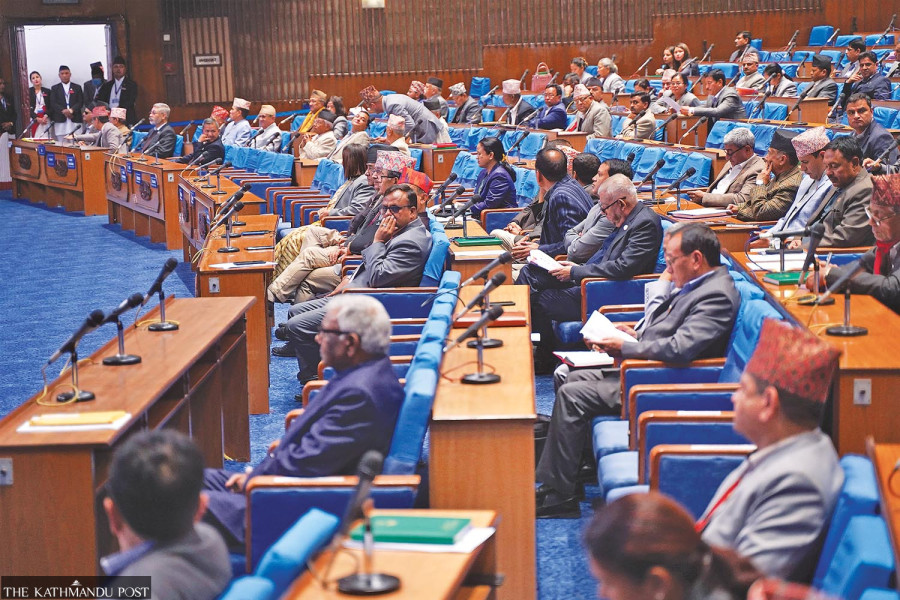Editorial
What a waste
Nepal’s lawmakers are more interested in development work than lawmaking.
The futile first session of the Parliament does not bode well for the next four and half years: the session of the lower House commenced on January 8 was prorogued from Friday midnight. It ended on a pessimistic note, without passing a single bill in its four-month-long sitting, even as winter session is considered a “bills session”. The House of Representatives has five basic duties—government formation, lawmaking, maintaining oversight of executive agencies, endorsing the budget, and conducting parliamentary hearings. Historically, Nepali legislatures have been masters at making and unmaking governments. They are also rather good at endorsing budgets and conducting parliamentary hearings. But on the “tedious task” of lawmaking, their primary duty, Nepali parliamentarians have over the years and decades shown far less enthusiasm.
When it comes to our Parliament’s oversight functions, the role of thematic committees is vital. While a full House may not always be in session or may be mostly limited to procedural work, subject committees can do meaningful work on specific issues. This is why they are known as the Parliament’s “workshops”. They can pick up issues of public interest that fall under their thematic jurisdiction, study the matter and offer suggestions to concerned agencies. In Nepal's parliamentary history, some thematic committees have done commendable jobs by probing irregularities and suggesting remedial measures.
But such committees’ actions and decisions have also often courted controversy. For instance, the committees are known to summon government officials, grill them and issue directives without properly studying the underlying matter. This tendency has at times invited tussles between the legislature and executive wings of the state. Such haste has also given an excuse to the concerned bodies not to implement the committees’ decisions. So while there is a need to make the parliamentary committees work proactively, it is as important to make sure they work earnestly and take decisions based on solid research. If they can do that, the thematic panels can make people believe that the Parliament raises (and addresses) issues of their concern. Only then can the federal legislature connect with the general people. One of the most pressing issues is the ongoing financial crisis. The Finance Committee of the House of Representatives can thoroughly study the crisis, engage in discussions with stakeholders and suggest tangible solutions.
Parliamentarians’ constitutional and political accountability is basically reflected in their lawmaking and oversight. They can check if the executive is spending money from state coffers properly. But that is not what happens. Nepal’s lawmakers have historically paid more attention to development work, which they can use to financially benefit themselves and their near ones. One such example is the continued strong support among lawmakers for the constituency development fund.
This fund has been widely criticised. The idea of the federal lawmakers overseeing local development projects has become irrelevant after the country embraced the federal system. But they still insist on it. This exposes our lawmakers’ intent. They must give a better account of themselves as people’s chosen representatives. Moreover, there can be no more egregious waste of taxpayer money than running a dysfunctional House.




 13.12°C Kathmandu
13.12°C Kathmandu














